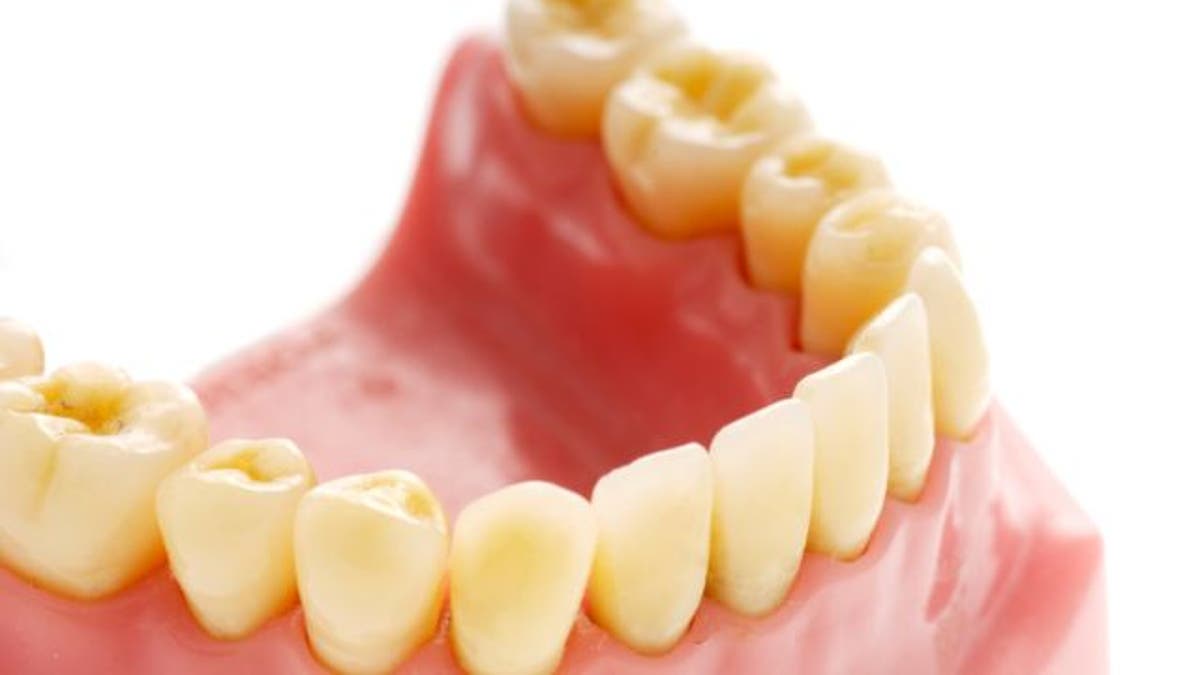
Artificial teeth that detect when people chew, drink, speak and cough could help people track exactly how much they eat, along with other aspects of their health, researchers say.
In a study, the scientists used dental cement to glue sensors onto the teeth of eight volunteers. The devices were accelerometers that recognized movement in all three dimensions, and were coated with dental resin to keep them safe from saliva. Thin wires connected to the sensors helped collect their data.
The researchers had the volunteers chew gum, drink a bottle of water, cough or read a section of an article. The participants spent about 40 seconds on each activity.
"Our mouth is an opening into our health our drinking and eating behaviors shed light on our diet," said researcher Hao-hua Chu, a computer scientist at National Taiwan University in Taipei. "How frequently we cough also tells us about our health, and how frequently we talk is related to social activity that can be related to health." [10 Technologies That Will Transform Your Life]
Each of these activities moves teeth in a unique way. When it came to recognizing what a study participant was doing based solely on data from the devices, the system researchers developed was up to 93.8 percent accurate. [Video of the smart tooth]
var player; var modVP; var modExp; var modCon; var csDocDomain = 'http://www.livescience.com/39493-smart-tooth-gives-health-conscious-something-to-chew-on.html'; var csDocTitle = ''Smart Tooth' Gives Health Conscious Something to Chew On'; function myTemplateLoaded(experienceID) { player = brightcove.api.getExperience(experienceID); modVP = player.getModule(brightcove.api.modules.APIModules.VIDEO_PLAYER); modExp = player.getModule(brightcove.api.modules.APIModules.EXPERIENCE); modCon = player.getModule(brightcove.api.modules.APIModules.CONTENT); modExp.addEventListener(brightcove.api.events.ExperienceEvent.TEMPLATE_READY, onTemplateReady); } function onTemplateReady(evt) { modVP.addEventListener(brightcove.api.events.MediaEvent.PLAY, onMediaEventFired); } function onMediaEventFired(evt) { loadVideoComscore(csDocDomain, csDocTitle); } brightcove.createExperiences();
Chu said his 11-year-old daughter helped inspire him to invent these "smart teeth."
"Unfortunately, she has to go to dentist a lot," he said. "That got me to thinking is there a way to integrate digital technology into artificial teeth?"
The scientists also took removable artificial teeth and embedded accelerometers in them. Future prototypes will include small Bluetooth radios capable of wirelessly transmitting sensor data to nearby mobile devices for analysis.
"Your future dentist can offer two options for artificial teeth the first one is a traditional artificial tooth, and the second option is a smart tooth that you can use to record your activity," Chu said. "We might also be able to put in a small energy harvester to provide enough power to run the device for a day at least, instead of taking the tooth out and recharging it."
Additional sensors added to smart teeth could help detect even more detailed information; for instance, what people are eating, Chu added.
Chu with Polly Huang, and their colleagues Cheng-Yuan Li, Yen-Chang Chen and Wei-Ju Chen presented their work Sept. 11 at the International Symposium on Wearable Computers in Switzerland.
Copyright 2013 LiveScience, a TechMediaNetwork company. All rights reserved. This material may not be published, broadcast, rewritten or redistributed.
